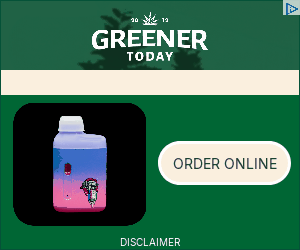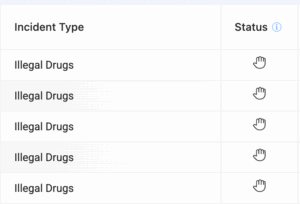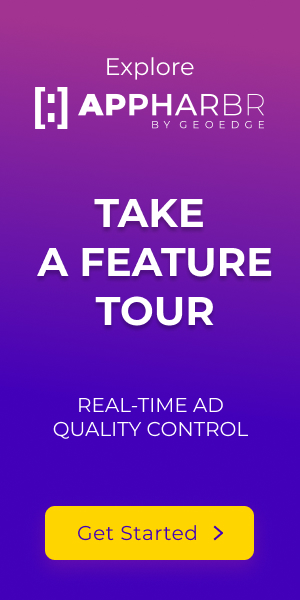In today’s rapidly growing mobile ecosystem, ensuring mobile ad quality control––particularly regarding alcohol advertising and drug promotion––has become critical for publishers, developers, and parents alike. Concerns about inappropriate ad exposure in children’s games and family-friendly apps are on the rise. So understanding how to effectively block, filter, and report substance-related advertisements is essential for building trust, compliance, and retention. This post explores proven strategies and advanced solutions—including specialized ad quality SDKs, comprehensive parental control apps, robust content filtering methods, and efficient reporting mechanisms—that empower you to proactively protect your audience and, in turn, your brand. Discover unique insights and examples of actionable steps that help you promote safe, high-quality experiences for children in your mobile apps.
Risks and Dangers of Alcohol and Drug Ads in Mobile Gaming
In the highly competitive mobile gaming market, user experience and brand integrity are essential. Poor ad placement of drinking and alcohol-related creatives in mobile apps—particularly in games meant for young people and families—can cause significant brand damage, regulation compliance issues, and loss of parent trust. Examples of alcohol ads appearing unintentionally within mobile apps range from branded images promoting alcoholic beverages to pop-up videos featuring underage drinking and other drinking behaviors that set a bad example for young people. Similarly, drug-related advertisements or creatives, including cigarettes/e-cigarettes occasionally infiltrate gaming spaces through inadequately moderated third-party advertising networks, exposing children and vulnerable audiences to inappropriate forms of content intended only for adults.


Alcohol ads pose real dangers, especially within apps tailored for children. Early exposure to alcohol and drug-related content can normalize harmful behaviors or trigger premature curiosity among children and adolescents, undermining parental controls and safety measures. For mobile game publishers and developers, such scenarios threaten not only their reputation but also potential legal and regulatory consequences. Additionally, complaints and negative reviews resulting from inappropriate creatives displayed to children may directly impact app ratings, retention, and revenue streams.
Learning why advertisements showcasing alcohol and drinking appear in your app is the first step toward solving the issue. Typically, the cause is insufficient advertising network curation, limited content filtering capabilities, or integration with advertisers lacking robust moderation standards. Addressing these gaps proactively enables publishers to protect both their users’ well-being and their brand reputation effectively.
How to Block Drug and Alcohol Ads on Android and iOS
Blocking alcohol and drug advertisements on Android and iOS mobile apps requires both awareness of available solutions and the proactive integration of effective ad filtering technologies. It is essential for publishers to develop an understanding of dedicated tools and curb any long-term impact inappropriate advertising can have on their child/teen base and revenue.
On Android, leveraging specialized ad-filters embedded directly within monetization stacks, such as AppHarbr, designed explicitly for alcohol and drug-related content filtering, ensures rigorous ad moderation. Similarly, publishers operating on Apple iOS can employ dedicated filtering software solutions, providing reliable protection against inappropriate substance ads.
Additionally, regularly audit your ad providers, ensuring strict moderation guidelines and transparent content policies. Proactive selection and regular dialogue with networks significantly lowers the risks associated with problematic creatives that lead to complaints. When it comes to children’s apps, Apple and Android are both stricter when it comes to prohibited media. While drinking alcoholic beverages may still result in complaints from adults, the consequences for a single instance of prohibited alcohol and drinking content served to children could be significant for your app. Beyond adults complaining online and in app store reviews, you’re at risk of suspension or permanent delisting from the Apple App Store and Google Play Store.

Ad SDK and APIs for Alcohol and Drug Content Filtering
Ensuring mobile ad safety from alcohol and drug-related advertising requires sophisticated automated solutions like specialized SDKs and APIs. Integrating these tools provides proactive, real-time moderation, accurately identifying creatives that feature alcohol by using machine learning, keyword or image databases, and context-analysis techniques.
Direct API integration with partner platforms automates the moderation processes, effectively screening ads for compliance with set guidelines, thus safeguarding the publisher’s brand and trust. Leveraging SDKs and APIs significantly enhances workflows, reduces manual effort, and solidifies content quality standards.
Reporting Problematic Ads in Children’s Apps
Providing clear, accessible reporting mechanisms to users is essential. Effective reporting systems feature user-friendly ways for parents to flag problematic advertisements, facilitating swift escalation and resolution. But a reactive method cannot stand alone. Developers need an automated solution like AppHarbr to stop inappropriate creatives from being served in the first place.
Establishing open communication channels with advertisers and mediation providers helps publishers swiftly resolve issues and minimize the display of alcohol in app. Relying only on mediation is not efficient because maintaining the quality takes much more time and manual effort working with the networks to secure highest ad quality. Actively analyzing reported issues and examples of alcohol ads improves moderation policies and allows proactive identification of problematic advertisers, providing better long-term content moderation performance. Implementing an in-app solution like AppHarbr allows developers to do this efficiently, providing information on blocked creatives and reported content, all while minimizing the manual effort needed by developers.

Choosing the Best Tool to Block Substance-Related Ads
Select ad-blocking solutions based on moderation technology, integration capabilities, ease of use, reliability, and scalability. Traditionally, developers have relied on mediation to evaluate targeted ads, but these legacy methods cannot handle the large amount of media coming through the programmatic pipeline. Prioritize tools offering machine-learning algorithms, contextual analysis features, and seamless integration.
Choosing reputable solutions with demonstrated effectiveness ensures reliable performance. The right tool will simplify moderation, strengthen trust, and ensure compliance with evolving regulations.
Control Alcohol and Drug Ads Today
Ensuring mobile ad quality by proactively managing and blocking alcohol and drug-related advertising in children’s apps is fundamental to protecting your brand, maintaining compliance with regulations, and building loyalty among parents. By evaluating the risks, incorporating parental control tools, and implementing dedicated, real-time blocking tools, publishers significantly enhance their mobile app environment, demonstrating their commitment to audience safety.
Discover how AppHarbr can help you effectively moderate, block, and manage alcohol- and drug-related advertisements in your mobile apps. Ensure complete ad quality control, protect your users, and maintain brand integrity—contact us today to learn more about our tailored solutions.
Protect your mobile app audience by proactively filtering out alcohol and drinking advertisements. Learn about ad filtering SDKs and how to efficiently monitor ad quality in app to maintain a safe and compliant mobile experience.
Discover how AppHarbr can help you detect, manage, and prevent problematic ads today.




